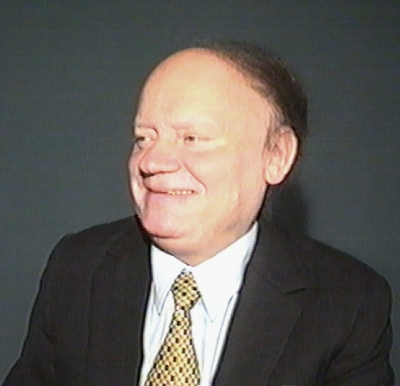Superluminal IT: A Proposal by
Zbigniew Andrzej Nowacki

Lodz, Poland, September 2010
Soon after when in 1997 I began my work at Technical University of Lodz, I was searching for the topic of my postdoctoral thesis. I learned quickly that the future of computing is the use of quantum computers. I agreed, roughly speaking, with this opinion, but I like to think differently from the rest. Perhaps for this reason I saw some of the details in another light.
I came to the conclusion that the use of qubits and Feynman-type processors might have a number of practical limitations, and therefore an alternative solution was needed. Since 2002 I have been trying to publish articles that can lead us to a new technological area called by me SIT (Superluminal Information Technology), but in referee's reports I have been obtaining mostly invectives and insults. In my opinion the lack of substantive counter arguments proves that I am right.
One day I received the message that my works would not be published in any scientific journal (and it was the only true sentence in the referee's report). I smelt the Inquisition. Fortunately, we do not live in the Middle Ages, and I am not Galileo. We have the Internet, I have not renounced my chosen path, and I have decided to publish some of my papers here.
At present there is no need for further referee's reports of my articles. I know already what contemporary physicists can tell us about my experiments. For instance, a referee of Quantum Nonlocality... taught me that "Bell's theorem implies that if there exists a hidden variable model for quantum mechanics then it must be non-local – nothing more." The only snag is that I do not base on this theorem, and I do not deal with hidden variable models. If I mention Bell inequalities, it is just to emphasize that with their assistance one cannot send signals.
I would rather expect the practical verification of experiments proposed in Quantum Nonlocality... If the results are positive (I am confident that this will be the case), we will be able to say that SIT is a fact, and it can be an alternative to Feynman-type processors.
Quantum computers and networks
Let us imagine a computer whose processor contains quantum links described in Quantum Nonlocality... Similar ones are in its hard disk (or something of this kind) and other peripherals, and all its parts are joined by such links. The computer communicates with the outside world via a sort of the Internet, where most of data are also transmitted at using quantum links. The last possibility is – as we all know nowadays – extremely important, but it is unreachable using Feynman-type processors.
Can we call this machine a quantum computer? The answer is probably obvious. However, the device will not require any special algorithms because it will simply operate on bits instead of qubits. Thus quantum machines and networks of this type will process and send everything with great speed.
If Mark Zuckerberg, the chairman of Facebook renamed Meta Platforms in 2021, really wants to realize his dream of a network of 3D virtual worlds, i.e. 'metaverse', it has to be said that Feynman processors would not help him even if they did eventually work. On the other hand, my quantum machines seem to be perfectly designed for this purpose. Superlumination transmission can also be very useful for Elon Musk in his plans to conquer space.
If the results of the experiments are positive, an objective theory of quantum phenomena will be needed. The article Quantum Physics... contains a (necessarily very preliminary) outline of such a theory. Of course, other proposals are still possible (e.g. info-mechanics of Alternative Gravity Approach... looks tremendously inviting).
Lodz, Poland, September 2019
In recent days, there has been a piece of news on the Internet that reportedly Feynman-type processors already work reliably and faster than traditional machines. I think that it is the preparation of the awarding of this year's Nobel Prize for this sort of quantum computers. Is it impossible? Well, bigger mistakes have happened before.... And if now those I mean are rewarded, it'll be fun.
Lodz, Poland, October 2019
Well, this time it didn't work out. (Congratulations to the members of the Nobel Committee for not falling for this hoax.) It is a pity because I had a comprehensive discussion prepared. However, nothing is lost, maybe we will laugh next year.